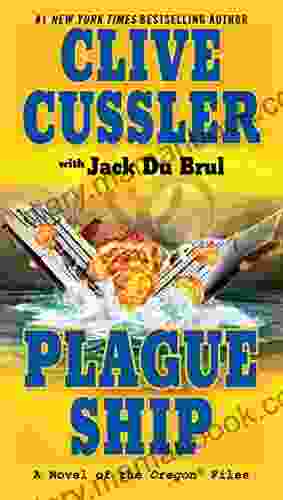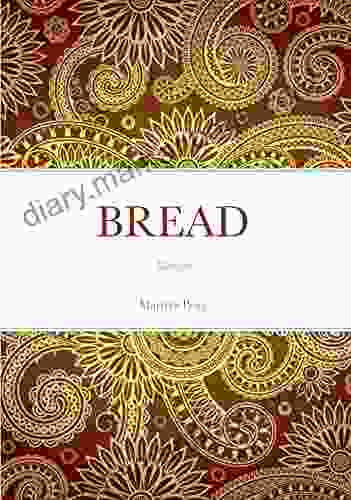Saving Daylight: A Journey of Discovery and Enlightenment through George MacDonald's Timeless Classic

In the literary tapestry of the Victorian era, George MacDonald's novel "Saving Daylight" stands as a beacon of philosophical depth, literary brilliance, and profound spiritual insight. Published in 1884, this allegorical masterpiece invites readers to embark on a captivating journey of discovery and enlightenment, exploring the intricate interplay between faith, imagination, and the enduring power of love.
A Victorian Masterpiece
George MacDonald (1824-1905) was a renowned Scottish novelist, poet, and theologian who left an indelible mark on Victorian literature. His works, deeply imbued with Christian symbolism and allegorical themes, continue to captivate readers to this day. "Saving Daylight" is considered one of his most significant achievements, showcasing his profound understanding of human nature and his unwavering belief in the transformative power of spiritual truth.
4.6 out of 5
| Language | : | English |
| File size | : | 3490 KB |
| Screen Reader | : | Supported |
| Print length | : | 90 pages |
| Paperback | : | 288 pages |
| Item Weight | : | 15 ounces |
| Dimensions | : | 6 x 0.72 x 9 inches |
Plot Overview
The novel follows the journey of Sir Gibbie, a young man whose life is marked by both privilege and adversity. Born into wealth and privilege, Gibbie struggles to find meaning and purpose in his materialistic existence. As he embarks on a quest for fulfillment, he encounters a cast of unforgettable characters who guide him through a series of transformative experiences.
From the enigmatic Lady Ursula to the wise old King Florian, each encounter deepens Gibbie's understanding of himself and the world around him. He learns the importance of compassion, empathy, and the power of self-sacrifice. Through a series of trials and tribulations, he grapples with fundamental questions of faith, morality, and the nature of reality.
Allegory and Symbolism
"Saving Daylight" is a richly allegorical novel, where characters and events serve as symbols for abstract concepts and spiritual truths. The novel's title itself holds profound significance, representing the need to awaken to the transformative power of spiritual awareness and to reclaim the true purpose of our existence.
MacDonald's use of vivid imagery and evocative language creates a captivating tapestry of symbols that invite multiple interpretations. The journey to the "Land of Echo" symbolizes the quest for self-discovery and the exploration of the inner realms of consciousness. The "King of Broken Glass" represents the fragmented nature of our human experience, while the "Island of Annoyance" echoes the frustrations and challenges we face in our earthly lives.
Themes of Faith and Imagination
Throughout the novel, MacDonald explores the complex relationship between faith and imagination. He asserts that faith is not merely an intellectual assent to doctrine but a living, dynamic force that transforms our perception of reality. Imagination, in turn, is the faculty through which we connect with the transcendent and experience the spiritual dimension of existence.
MacDonald believed that the human imagination is a sacred gift, allowing us to glimpse the eternal realm and to experience the presence of the divine. Through his allegory, he encourages readers to cultivate their imaginative faculties and to open themselves to the transformative power of spiritual truth.
The Enduring Power of Love
Love is a central theme in "Saving Daylight," depicted in its various forms—romantic love, familial love, and the divine love that permeates all of creation. MacDonald portrays love as the ultimate force that redeems, heals, and brings about true fulfillment.
The relationship between Gibbie and Lady Ursula exemplifies the transformative power of romantic love. Through their love for one another, they transcend their earthly limitations and experience a glimpse of the divine. The novel also explores the complexities of familial love and the sacrifices parents make for their children.
Literary Legacy and Influence
"Saving Daylight" has had a profound impact on literature and spirituality. Its allegorical structure and deeply symbolic language have influenced generations of writers, including C.S. Lewis, J.R.R. Tolkien, and Madeleine L'Engle. The novel's spiritual insights and exploration of the human condition continue to resonate with readers today.
Beyond its literary merits, "Saving Daylight" has served as a source of spiritual inspiration for many. MacDonald's profound understanding of human nature and his belief in the transformative power of love have offered solace and guidance to countless seekers.
George MacDonald's "Saving Daylight" is a timeless masterpiece that transcends its Victorian origins and continues to speak to the human heart. It is a novel that invites us to explore the depths of our own being, to embrace the power of imagination and faith, and to discover the transformative power of love. Through its rich symbolism and profound spiritual insights, "Saving Daylight" offers a journey of discovery and enlightenment that can enrich and inspire readers for generations to come.
Additional Reading
- Saving Daylight by George MacDonald
- Saving Daylight on Wikipedia
- George MacDonald by C.S. Lewis
4.6 out of 5
| Language | : | English |
| File size | : | 3490 KB |
| Screen Reader | : | Supported |
| Print length | : | 90 pages |
| Paperback | : | 288 pages |
| Item Weight | : | 15 ounces |
| Dimensions | : | 6 x 0.72 x 9 inches |
Do you want to contribute by writing guest posts on this blog?
Please contact us and send us a resume of previous articles that you have written.
 Top Book
Top Book Novel
Novel Fiction
Fiction Nonfiction
Nonfiction Literature
Literature Paperback
Paperback Hardcover
Hardcover E-book
E-book Audiobook
Audiobook Bestseller
Bestseller Classic
Classic Mystery
Mystery Thriller
Thriller Romance
Romance Fantasy
Fantasy Science Fiction
Science Fiction Biography
Biography Memoir
Memoir Autobiography
Autobiography Poetry
Poetry Drama
Drama Historical Fiction
Historical Fiction Self-help
Self-help Young Adult
Young Adult Childrens Books
Childrens Books Graphic Novel
Graphic Novel Anthology
Anthology Series
Series Encyclopedia
Encyclopedia Reference
Reference Guidebook
Guidebook Textbook
Textbook Workbook
Workbook Journal
Journal Diary
Diary Manuscript
Manuscript Folio
Folio Pulp Fiction
Pulp Fiction Short Stories
Short Stories Fairy Tales
Fairy Tales Fables
Fables Mythology
Mythology Philosophy
Philosophy Religion
Religion Spirituality
Spirituality Essays
Essays Critique
Critique Commentary
Commentary Glossary
Glossary Bibliography
Bibliography Index
Index Table of Contents
Table of Contents Preface
Preface Introduction
Introduction Foreword
Foreword Afterword
Afterword Appendices
Appendices Annotations
Annotations Footnotes
Footnotes Epilogue
Epilogue Prologue
Prologue David Baldacci
David Baldacci D Nurkse
D Nurkse Alexandra Rain
Alexandra Rain Amber Dawn
Amber Dawn Meggie Clear
Meggie Clear Jenn Mckinlay
Jenn Mckinlay K Sharronne
K Sharronne Lars Kawczyk
Lars Kawczyk Barbara Risoli
Barbara Risoli Marilee Sprenger
Marilee Sprenger Rolly A Chabot
Rolly A Chabot Jason Hickel
Jason Hickel Aurora Hanson
Aurora Hanson Rosie James
Rosie James Tony Ross
Tony Ross Marianne Moore
Marianne Moore Sarah Mccarry
Sarah Mccarry Karpov Kinrade
Karpov Kinrade Julia Smith
Julia Smith Michael Gallagher
Michael Gallagher
Light bulbAdvertise smarter! Our strategic ad space ensures maximum exposure. Reserve your spot today!
 Harry CookFollow ·5k
Harry CookFollow ·5k Bryan GrayFollow ·14.8k
Bryan GrayFollow ·14.8k Leslie CarterFollow ·16.1k
Leslie CarterFollow ·16.1k Chris ColemanFollow ·19.1k
Chris ColemanFollow ·19.1k Michael CrichtonFollow ·4.9k
Michael CrichtonFollow ·4.9k Xavier BellFollow ·11.9k
Xavier BellFollow ·11.9k Kazuo IshiguroFollow ·10.7k
Kazuo IshiguroFollow ·10.7k Fletcher MitchellFollow ·13.5k
Fletcher MitchellFollow ·13.5k

 Jorge Luis Borges
Jorge Luis BorgesThe Truth About the 15 Qualities That Men Secretly Admire...
Every woman wants to be loved and...

 Francisco Cox
Francisco CoxPlague Ship: Unraveling the Mystery of the Oregon Files
The Oregon Files, a collection of classified...

 Rudyard Kipling
Rudyard Kipling101 Strategies to Make Academic Vocabulary Stick: A...
Academic vocabulary is an...

 Fletcher Mitchell
Fletcher MitchellPractitioner Guide for Cities, Regions, and Countries:...
The world is...

 Emilio Cox
Emilio CoxOptimization and Security Challenges in Smart Power Grids
Smart power grids (SPGs) are emerging as a...

 Chandler Ward
Chandler WardMiles Davis and the Civil Rights Movement in America: A...
Miles Davis, the iconic jazz...
4.6 out of 5
| Language | : | English |
| File size | : | 3490 KB |
| Screen Reader | : | Supported |
| Print length | : | 90 pages |
| Paperback | : | 288 pages |
| Item Weight | : | 15 ounces |
| Dimensions | : | 6 x 0.72 x 9 inches |












